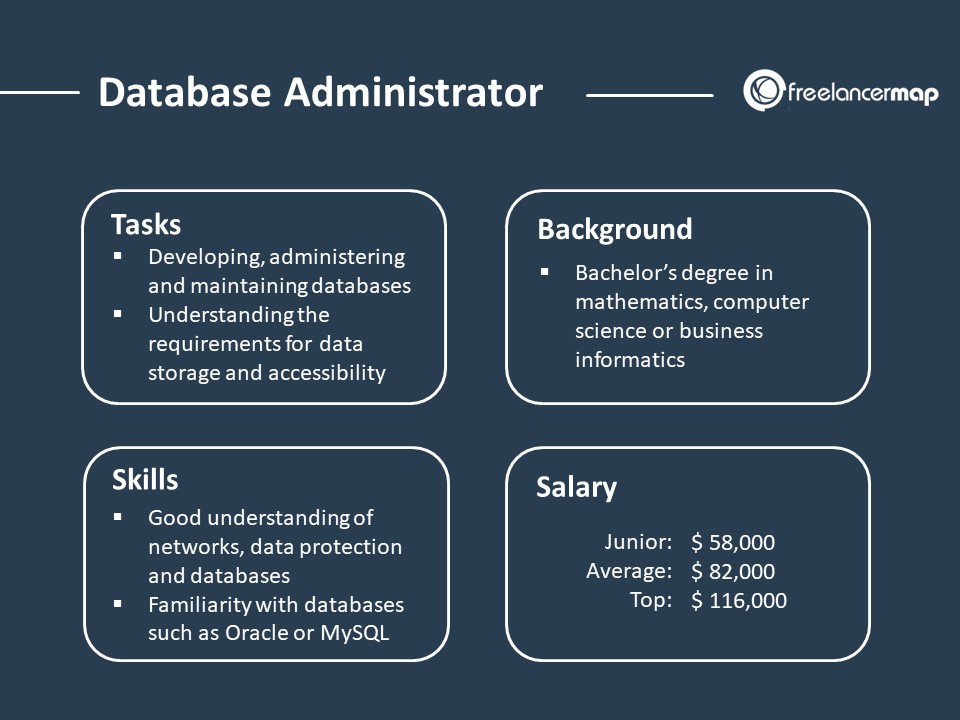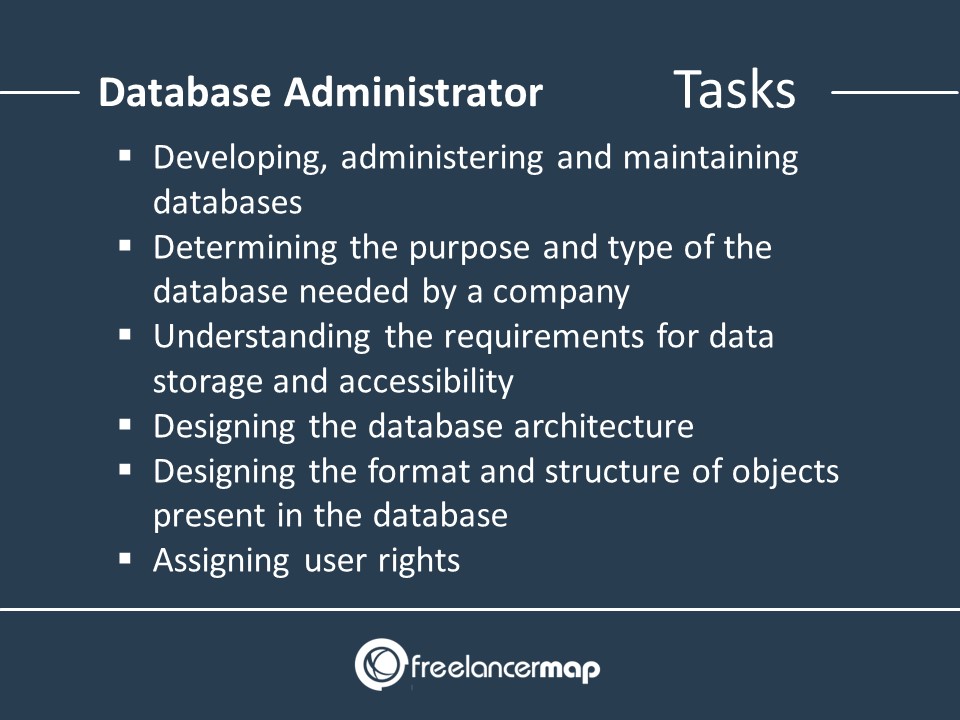Database administrators (DBAs) are primarily responsible for the maintenance and administration of database management systems (DBMS). They monitor applications, save relevant data and keep the databases up to date. What does a database administrator do?
What is database administration?
Database administration refers to the set of activities and functions performed by a database administrator. These activities include periodic monitoring and troubleshooting.
Administration in this field enables an administrator to help companies create new or update existing databases based on their data collection needs.


Database administration is an industry-independent profession. Nevertheless, it naturally only occurs in companies and branches of industries that work with databases. However, the number of such companies is growing steadily with increasing networking. That is why database administrators can be found in virtually all business and industrial sectors.
Roles and responsibilities of a database administrator
A database administrator, also known as a database manager, is responsible for the development, administration and maintenance of databases. They are in charge of determining the purpose and type of the database needed by a company, as well as the requirements for data storage and accessibility.
They design the database architecture, the format and structure of objects and their relationship to one another, and also ensure that users can quickly and easily find, filter and check the information stored in a database.


They are also responsible for ensuring that any existing data can be restored in the event of malfunctions or unforeseen incidents.
A DBA pays close attention to data protection and the security of the system by assigning rights, securing data, monitoring the performance and ensuring that the functionality of the database is guaranteed. If the system does not work as desired, the administrator optimizes it and adapts it to user requirements.
What are the responsibilities of a database administrator?
- Developing, administering and maintaining databases
- Determining the purpose and type of the database needed by a company
- Understanding the requirements for data storage and accessibility
- Designing the database architecture
- Designing the format and structure of objects present in the database
- Ensuring that users can quickly and easily find, filter and check the information stored in a database
- Ensuring that any existing data can be restored in the event of malfunctions or unforeseen incidents
- Overseeing data protection and security of the system
- Assigning user rights
- Securing data when needed
- Monitoring the performance of the database
- Ensuring that the functionality of the database is guaranteed
- Optimising and adapting databases to user requirements
Looking for Database administrators?
Find the right freelancers here
Skills of a database administrator
Database administrators have a good understanding of networks, data protection and databases. They are also extremely familiar with databases such as Oracle or MySQL.
DBAs have knowledge of various relevant programming languages and are familiar with computer operating systems and database technology.


They also have knowledge of main data manipulation languages and the principles of database design.
A database manager has the ability to work well in a team, is resilient, and possesses excellent problem-solving and analytical skills. They also have good communication skills and have a willingness to keep up to date with developments in new technology.
What are the skills of a database administrator?
- Good understanding of networks, data protection and databases
- Familiarity with databases such as Oracle or MySQL
- Knowledge of various relevant programming languages
- Familiarity with computer operating systems
- Knowledge of main data manipulation languages
- Familiarity with database technology
- Solid understanding of the principles of database design
- Ability to work well in a team
- Highly resilient
- Excellent problem-solving skills
- Good communication
- Willingness to keep up to date with developments in new technology
- Excellent analytical skills
Join our IT freelancer community today! Create your freelance profile in just 2 minutes.
Becoming a database administrator
Database administrators are usually IT specialists or university graduates in the fields of mathematics, computer science or business informatics. They also have several years of professional experience in database administration.
There are also plenty of courses online that you can benefit from. Check out options for these down below:
- MongoDB : A Complete Database Administration Course
- Training For Database Administrators
- SQL Database Course
- Oracle DBA 11g/12c – Database Administration for Junior DBA
Is database administrator a good career?
The salary for a database administrator is influenced by various factors such as the industry they’re in, who their employer is and the degree that they possess.
Junior administrators can earn around $58,000 per year whereas senior administrators can earn around $116,000 every year. The average salary for a DBA is around $82,000 per year.
In Germany, DBAs can earn anywhere between €29,000-€71,000, whereas in the UK, the range is £19,000-£68,000.
How much do database administrators earn?
| Junior | $58,000 |
| Average | $82,000 |
| Senior | $116,000 |
How much do freelance database administrators make?
| Average rate Database Administrators (2022) | $76/hr |
On average, freelance Database Administrators charge $76/hour (freelancermap’s price and rate index in September 2022).
Freelance rates in DBA range between $35 and $91 for the majority of freelancers.
Considering a freelance rate of $76/hour, a freelancer would charge $608/day for an 8-hour working day.
